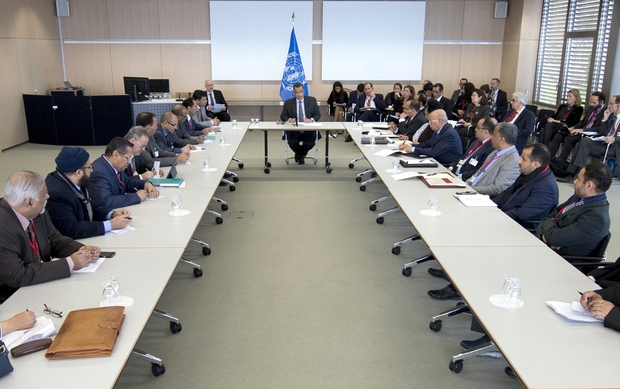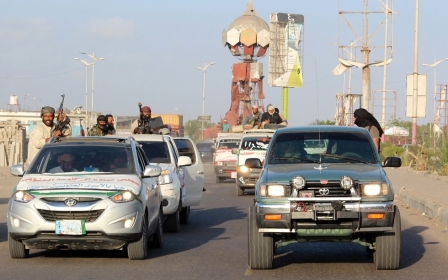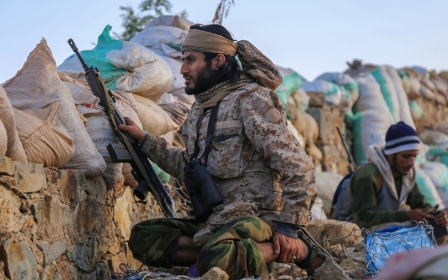Yemen peace talks continue despite ceasefire violations

Yemen's warring parties resumed UN-sponsored peace talks in Switzerland on Saturday despite ceasefire violations that threatened to end dialogue.
The United Nations special envoy for Yemen has voiced alarm at widespread violations of a fragile ceasefire, but insisted the ongoing peace talks between the warring sides in Switzerland would continue.
Special Envoy Ismail Ould Cheikh Ahmed "is deeply concerned at the numerous reports of violations of the cessation of hostilities," his office said in a statement issued late Friday.
Meanwhile, US President Barack Obama said on Friday that there was an "urgent need for all parties to adhere to the ceasefire".
The comments came after Yemen's ceasefire, which took effect on Tuesday, appeared to have collapsed as government forces seized two towns from Houthi militia and the Saudi-led Arab coalition accused the militiamen of escalating the conflict by firing ballistic missiles.
The coalition said Saudi air defences had intercepted a ballistic missile fired from Yemen and that a second missile struck a desert area east of the Saudi city of Najran.
Saudi Arabia's border guard repeated a warning that residents should stay away from the frontier because of the missile fire.
A spokesman for renegade troops still loyal to wealthy ex-president Ali Abdullah Saleh – who is allied to the Houthis and represented in the peace talks - acknowledged firing two ballistic missiles.
The special envoy "urges all parties to respect this agreement and allow unhindered access for the delivery of humanitarian assistance to the most affected districts of Yemen," the statement said.
It was issued after a fourth day of rocky peace talks, during which the special envoy "held several sessions with the participants," the statement added.
The discussions "focused mostly on security issues in Yemen, in light of the alarming developments on the ground," it said, stressing that both sides had "renewed their commitment for a ceasefire."
"A coordination and de-escalation committee was created to strengthen adherence to the cessation of hostilities," the statement said.
On Friday, the two sides in the talks had hinted the discussions were struggling, with a member of the government delegation telling AFP that the opposing delegation failed to show up for a scheduled joint meeting.
A member of the rebel delegation, which represents both the Iran-backed Houthi Shia militia and renegade troops loyal to Saleh, said their side had "protested because the UN is not capable to impose a ceasefire".
The Houthis insisted they had not pulled out of the talks, and Ould Cheikh Ahmed's office said both "bilateral and group consultations" would continue on Saturday "to build on what was agreed upon in previous days and continue efforts to find an urgent political resolution to the crisis in Yemen".
The UN announced a first breakthrough in the talks on Thursday, saying the sides had agreed to "allow for a full and immediate resumption of humanitarian assistance" in the flashpoint Yemeni city of Taiz.
Also on Thursday, pro-government forces and militiamen completed an exchange of hundreds of prisoners in the southern province of Lahj.
Going forward, the UN has said discussions would include developing a plan for a sustainable ceasefire and further prisoner releases.
Yemen's conflict began in September 2014, when the Houthi militiamen advanced from their northern strongholds to occupy the capital Sanaa.
It has escalated dramatically since Saudi-led air strikes against the militia began in March, with more than 5,800 killed and more than 27,000 wounded since then, according to the UN.
New MEE newsletter: Jerusalem Dispatch
Sign up to get the latest insights and analysis on Israel-Palestine, alongside Turkey Unpacked and other MEE newsletters
Middle East Eye delivers independent and unrivalled coverage and analysis of the Middle East, North Africa and beyond. To learn more about republishing this content and the associated fees, please fill out this form. More about MEE can be found here.




